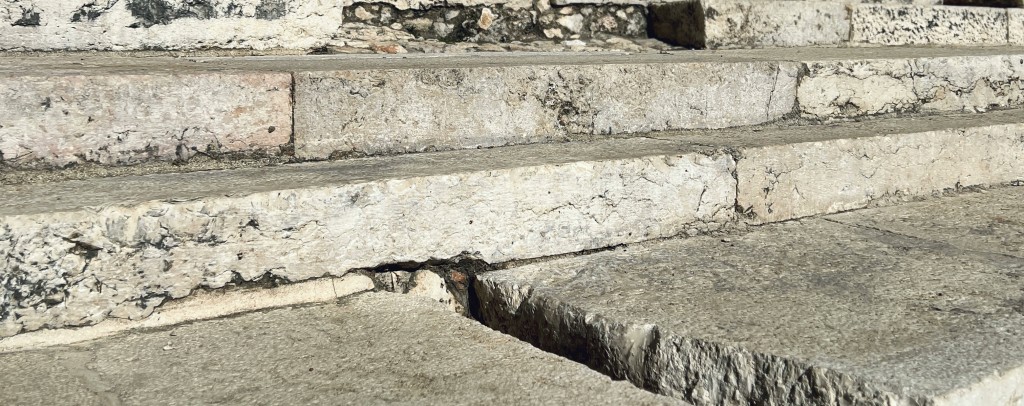You have free articles remaining this month.
Subscribe to the RP Witness for full access to new articles and the complete archives.
Introductory Remarks
The prophet Zechariah, grandson of Iddo, born of priestly stock, had a name—“Yah remembers”—that reminds saints in small-things days that Yahweh remembers His flock. Zechariah served alongside co-pastor Haggai, among Jews returned from exile. By the time he was called to preach, two decades had elapsed. Temple reconstruction stalled in times of economic recession, spiritual antagonism, and political opposition from local resident groups. With Kings Cyrus and Cambyses gone, the second year of Darius restored calm to the Persian Empire. The time was ripe, in light of hope, to return to the building site.
Basic Layout
Some of Zechariah’s statements are, admittedly, opaque. Bizarre visions can distract readers. Don’t be deterred! His “back to work” message is straightforward. The first half of the book (chaps. 1–6) gives a brief introductory biopic and summons the people to repent (1:1–6). It is followed by eight rapid-fire, nocturnal visions, mediated through angels (led by our preincarnate Lord). In the second half (chaps. 7–14) are more regularly styled, undated prophecies—likely from a later period of ministry—with a focus change from the visual to the verbal.
Visual Revelation: Chapters 1–6
Vision 1 horses (1:7–17) tell us that global slumber is under sovereign scrutiny and about to be awakened. Vision 2 craftsmen (1:18–21) bring Jews the news of repaid foes. Plumbline Vision 3 (2:1–13) gives firewall protection to Zion’s expanded, repopulated perimeter. Vision 4 (3:1–10) refits filthy High Priest Joshua to stand before the Lord, to act as a signpost to the atoning, coming Branch. Vision 5 (4:1–14) empowers governor Zerubbabel to complete reconstruction work. The Scroll of Vision 6 (5:1–4), curse-filled back and front, is followed by Vision 7 (5:5–11)—exile evil is a “basket case” to be relocated to Babel. In Vision 8 (6:1–15), heaven-sent chariots pass through bronze gates to assemble exile wealth from all four compass points. The brow of Joshua is crowned with gold in a deeply symbolic act—his diadem pledges future fusion of the Branch’s duplex messianic, single, Priest-King office.
Verbal Revelation: Chapter 7–14
Part two is fronted by a Bethel delegation that seeks exemption from boring, selfish fasts. By way of response, self-interest is rebuked. The whole point of exile was to put worship focus back on God. If Jews repent, feasts will replace fasts (7:1–8:23). Near and far, hostile nations drop like flies, as Zion’s King of Peace trots down from the North. He has come to inaugurate an era of covenantal bliss (9:1–17). Shepherds are rebuked, rulers rejuvenated, and Jerusalem renewed, repopulated, and redeemed (10:1–12).
Zechariah is appointed to care for the flock. His reforms are hated, undervalued, and rejected by the people. He snaps two rods to signify breach of stick-like covenant and brotherhood oaths. The flock is turned over to a worthless, woeful ruler (11:1–17).
Then, all of a sudden, the mood music changes. Jerusalem becomes a cup on which enemies get drunk, a blazing torch that scorches territories right and left, and a mighty camp where the feeblest of saints are enlisted as crack troops, with the Son of David pierced to open a spring where sinners weep and wash (12:1–13:1). With sin now purged, false prophets named and shamed, and the Priest-King at their head, an elect remnant enters and enjoys the Messianic Age (14:1–21). Greek (and perhaps Roman) wars lie concealed in details and point past their own bloodbaths to the final battle and last day of the Lord.
Messianic Fulfillment
The Priest-King Branch is front and center of kingdom reconstruction and consummation. His humble coming, shamefully undervalued rejection, and fatal wounding promise peace, pardon, and paradise. This helps explain why Zechariah is quoted so often by New Testament writers, particularly so in gospel passion narratives. His words proof-text Christ’s triumphal entry, betrayal, desertion, piercing, and lamentation.
Memorable Message
Christians are also exiles in our postmodern secular culture, often discouraged by political constraint, social attack, and minimal fruit. Yet, though weak, we also have the Spirit’s might.
Rest content in knowing Christ rules the globe for good. Never forget God gave His Son for the flock He can’t forget. And, if sin has been atoned, and most of what the prophet preached fulfilled, all that awaits is the return of the Shepherd Branch they pierced, for whom they will eternally weep, with no room left to repent. Till He comes back, with His vast angelic host, to fill paradise with everlasting light and fruit, work and wait in hope!
